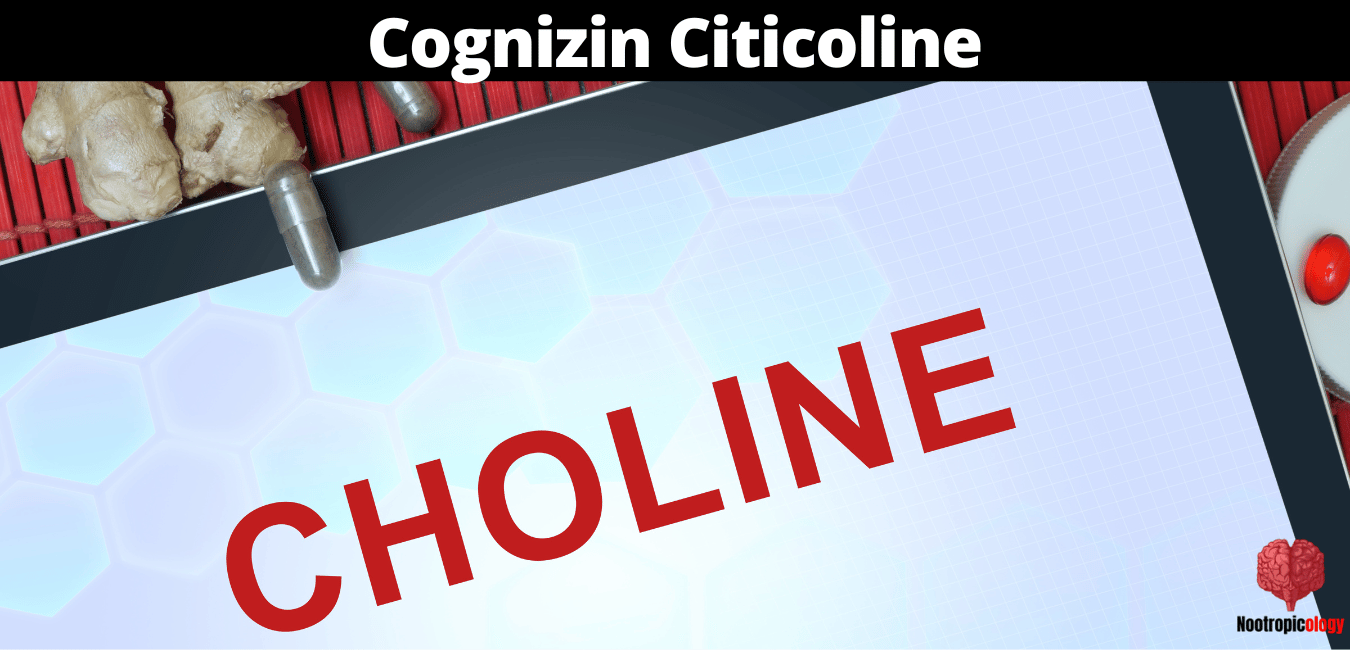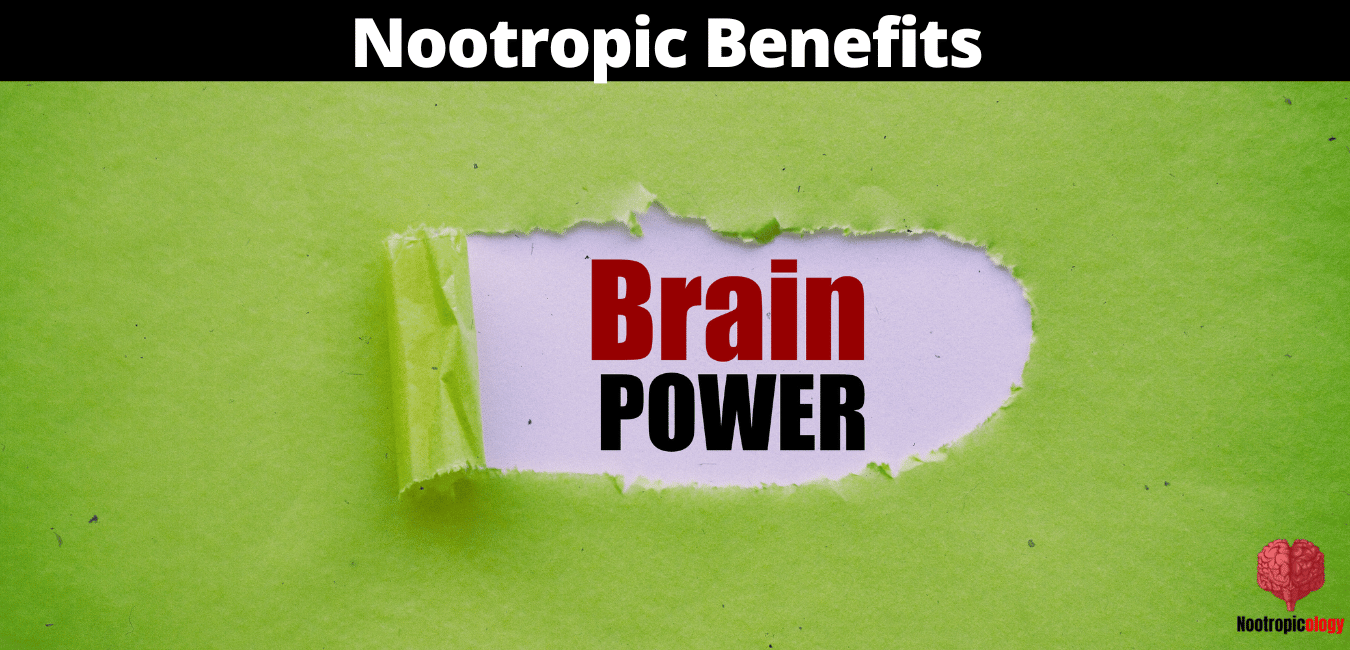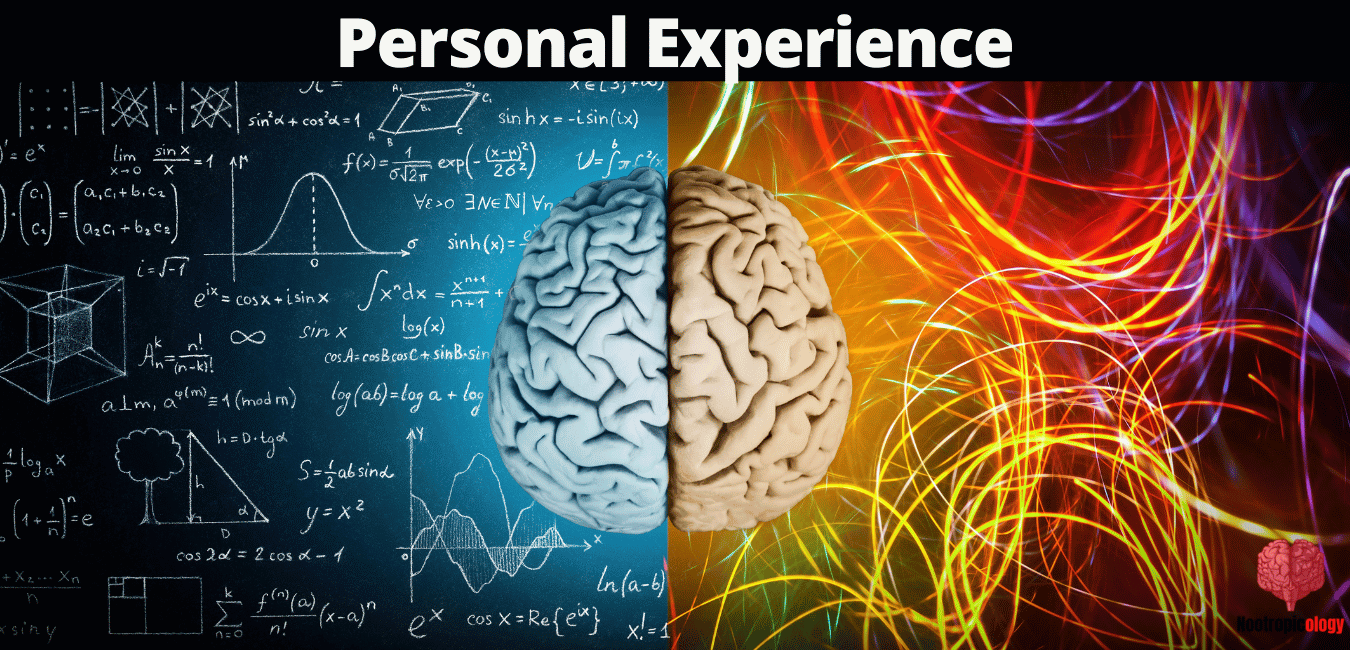
Citicoline, also known as cytidine 5′-diphosphocholine (CDP-choline), is an endogenous nucleotide naturally found in our bodies. It plays a crucial role as an essential intermediate in the synthesis of phosphatidylcholine (PtdCho), a significant phospholipid found in our cell membranes. This synthesis is often referred to as the Kennedy pathway.[1]
Citicoline's biological activity has made it a drug of choice for various neurodegenerative conditions like traumatic brain injuries, stroke, vascular dementia, Parkinson’s disease, and brain aging. It acts as a stabilizer of cell membranes and mitigates the presence of free radicals. Furthermore, it stimulates the release of dopamine neurotransmitters in the brain, which is crucial for several cognitive functions and motor control.[2]
It also plays a vital role in activating the central cholinergic system, thus increasing the plasma adrenocorticotropic hormone (ACTH) levels and potentiating serum thyrotrophin (TSH) levels. The stimulation of central nicotinic and muscarinic receptors also increases growth hormone (GH) and luteinizing hormone (LH) serum levels.[3] This activity is crucial in clinical conditions where alterations of acetylcholine metabolism are considered primary disease causes, like Alzheimer's Disease (AD).[4]
There are also strong indications that citicoline plays a role in improving memory. Some clinical studies have provided evidence supporting this hypothesis, and it is now being proposed for use in patients with mild cognitive impairment (MCI) to possibly slow cognitive deterioration that leads to dementia.[5]
What is Citicoline (Cognizin)?

Cognizin is a branded form of citicoline, a naturally occurring compound that plays a crucial role in the formation of healthy brain cell membranes. It also facilitates proper neurotransmission, particularly of acetylcholine, a neurotransmitter that supports memory and cognitive function. This formulation has been developed to maximize the benefits of citicoline, especially for brain health.[6]
Cognizin is manufactured by Kyowa Hakko Bio Co., Ltd., a global specialty fermentation company. It's made through a patented fermentation process that yields high-purity and quality citicoline, ensuring its efficiency and safety for consumption.
Cognizin has been the subject of several clinical trials demonstrating its potential benefits in enhancing cognitive health, improving memory, and promoting motor speed and attention. These benefits make it particularly valuable for individuals dealing with cognitive decline or seeking to improve their mental performance.
Citicoline (Cognizin) Mechanism of Action
Cognizin Citicoline works in a number of ways to support brain health. Firstly, it helps to maintain the integrity of neuronal cell membranes. By doing so, it aids in the efficient transmission of information within the brain. Secondly, Cognizin increases the production of several neurotransmitters, including acetylcholine (ACh), norepinephrine, and dopamine, which are crucial for memory and learning.
According to Fioravanti et al, Cognizin boosts the brain's energy reserves. The brain, despite accounting for only 2% of body weight, consumes approximately 20% of the body's energy. Cognizin supports brain metabolism by enhancing the production of ATP, the body's primary energy storage molecule.
Cognizin also offers potent antioxidant properties. It helps reduce the buildup of harmful free radicals and supports the health of mitochondria, the powerhouse of cells, thus contributing to overall brain health.
Therapeutic Applications of Citicoline
Stroke
Citicoline's therapeutic potential has been investigated in over 11,000 people, including patients and volunteers. Out of these, 1,372 patients participated in studies concerning its efficacy in acute ischemic stroke. A meta-analysis of these studies showed that citicoline increases the probability of complete recovery from moderate to severe stroke if administered within 24 hours of the stroke event. It restores PtdCho levels, which are found to decrease after a stroke.[7]
To ensure the effective delivery of citicoline and avoid variation in results between intravenous and oral administration, it is suggested that a more effective preparation for oral administration be used.[8]
Vascular Dementia
Vascular dementia (VD), associated with chronic cerebrovascular disorders (CVD), is a more complex and less defined condition than Alzheimer's dementia. The definition of VD has been a subject of discussion due to the heterogeneity of patient conditions classified under this group.
Numerous correlative studies attempting to find relationships between neuroimaging and cognitive patterns haven't yet been able to find a consistent and reliable correlation primarily due to the small sample size. However, distinct patterns of cognitive deficits have been observed in patients with chronic cerebrovascular disorders based on the presence of hippocampal volume alterations or diffuse grey and white matter changes. Memory deficits are more prevalent in the former, while executive function impairment is more significant in the latter group.
On the other hand, population studies have consistently found a relationship between vascular pathogenesis signs like arterial stiffness or generalized atherosclerosis and cognitive deterioration, ranging from mild severity to dementia.
Concerning cognitive deficits specificity, vascular dementia's cognitive deficits seem to be less severe and more difficult to define compared to Alzheimer's disease. For instance, executive function deficits seem to be more prevalent in vascular dementia, while memory deficits are more typical for AD.
Based on these findings, there's a strong proposal to introduce early therapeutic intervention in patients with mild signs of cerebrovasculopathy or even risk factors for it.[9]
Treatment of Cognitive Deficits
The therapeutic management of symptoms in cerebrovasculopathies has evolved significantly since the beginning of the last century, with citicoline emerging as a leading treatment option. In most clinical studies with citicoline in VD, memory improvement has been the primary goal.
Results from a meta-analysis showed that citicoline's effect on memory was significantly different from the placebo effect and didn't specifically depend on the pathogenesis of the cerebral disorder. This was indicated by an effect size of 0.19; confidence interval [CI] 95% 0.06, 0.32; p<0.005. The effect of citicoline on behavior control and competence was also significantly different from placebo and independent of the type of measure and pathology examined.[10]
However, the vast individual differences in the attention domain made it challenging to decipher the specific effects of citicoline on memory processes or secondary cognitive components.
It's also worth noting that citicoline's tolerability has been excellent regardless of the administration method or dosage, highlighting its potential as a safe therapeutic option for cognitive deficits.
Cognizin Citicoline Nootropic Benefits

Cognizin Citicoline has been particularly noted for its potential nootropic, or cognitive-enhancing, benefits.
Here are some of the key areas where it helps:
- Memory Enhancement: Cognizin helps improve memory in both healthy adults and those experiencing age-related or disease-related memory loss. This is likely due to its ability to boost acetylcholine production, a key neurotransmitter involved in memory formation and recall.
- Improved Focus and Attention: Some research suggests that citicoline improves attention and focus. It can help increase the levels of dopamine, a neurotransmitter that's involved in attention and focus.
- Mental Energy: Cognizin supports ATP production, the primary energy molecule in the body. By boosting ATP, Cognizin helps improve mental energy, reducing feelings of mental fatigue and improving overall cognitive performance.
- Neuroprotection: Cognizin has antioxidant properties, helping to protect the brain from damage by harmful free radicals. It also helps maintain the health and integrity of brain cells, potentially offering neuroprotective benefits.
Cognizin Citicoline Side Effects
Cognizin Citicoline is generally well-tolerated and considered safe when used appropriately. However, as with any nootropic supplement, some individuals may experience side effects. These can include:
- Digestive Issues: Some people may experience mild stomach upset, nausea, or diarrhea, particularly when starting the supplement.
- Headache: Some individuals have reported headaches after taking citicoline.
- Insomnia: In some cases, citicoline may cause difficulty sleeping, particularly if taken later in the day.
- Hypotension (low blood pressure): There's some evidence that citicoline might lower blood pressure, so people with already low blood pressure should exercise caution.
Most of these side effects are generally mild and tend to resolve on their own over time. However, if you experience persistent or concerning symptoms, it's a good idea to stop using the supplement and consult a healthcare provider.
It's also important to note that while Cognizin Citicoline has been studied for its potential benefits, it's not a replacement for a balanced diet, regular exercise, and a healthy lifestyle, all of which are crucial for optimal brain health. As always, you should talk to your healthcare provider before starting any new supplement regimen.
Dosage of Cognizin Citicoline
The recommended dosage of Cognizin Citicoline varies depending on the desired effect, age, and health status of the individual. In research studies, dosages typically range from 250 to 2000 mg per day. For nootropic purposes, many individuals find that a daily dose of between 250 mg and 500 mg is effective for improving focus, mental energy, and memory.
As with any supplement, it is advisable to start with the lowest effective dose and gradually increase it as needed. The intake should be split into two doses, one in the morning and one in the afternoon. This is to prevent potential over-stimulation which could interfere with sleep.
Stacking Cognizin Citicoline with Other Nootropics
Citicoline can be effectively stacked with other nootropics to enhance and complement their effects. Here are a few examples:
- Citicoline and Racetams: Citicoline is often combined with racetams, such as piracetam, aniracetam, or phenylpiracetam, as it helps to potentiate their effects. Citicoline helps to increase the amount of acetylcholine in the brain, which racetams use to exert their cognitive-enhancing effects.
- Citicoline and Noopept: Noopept, a peptide-derived nootropic, is known for its ability to enhance memory, learning capacity, focus, and neuroprotection. Citicoline can complement these effects by enhancing acetylcholine production and supporting brain health.
- Citicoline and Phosphatidylserine: Phosphatidylserine is a type of fat compound called a phospholipid, which can be found in your brain. It's been shown to improve memory and cognitive function, reduce stress, and boost mood. Stacking it with citicoline can boost these effects and support overall brain health.
Citicoline has a very low risk of interaction with other compounds. However, because it increases levels of acetylcholine in the brain, it should be used with caution when combined with medications that also affect acetylcholine levels. Some examples of these medications include Acetylcholinesterase inhibitors (used in the treatment of Alzheimer's disease), and certain medications used to treat glaucoma.
My Personal Experience Taking Cognizin Citicoline

So what do I personally think about Cognizin Citicoline as a nootropic? Well, after researching the science behind it and reading numerous testimonials, I decided to integrate it into my daily routine. Here's how my journey unfolded:
First Impressions and Dosage
I started off with a daily dosage of 250 mg, which is commonly recommended for beginners. I chose to take it in the morning, with breakfast, for optimal absorption and effect throughout the day.
Cognitive Enhancement
Over the first few weeks, I noticed a marked improvement in my ability to focus on tasks. This was particularly evident during long work hours when I used to experience mental fatigue. With Cognizin Citicoline, my mind felt clearer and I was able to stay productive for longer periods.
Memory Improvements
Another area where I felt a significant change was memory retention. Over time, I found it easier to remember detailed information, and my recall speed improved. It felt like the brain fog I often experienced was lifting, and I could retrieve information more effectively.
Mood and Energy
What pleasantly surprised me was the subtle uplift in my mood. Cognizin Citicoline seemed to offer a slight mood-enhancement effect, without the jitters I've experienced with caffeine and other stimulants. Moreover, I felt more energized and less prone to mid-afternoon slumps.
Stacking with Other Nootropics
I tried stacking Cognizin Citicoline with other nootropics like racetams and noticed an amplification in their effects. However, I would recommend this only after consulting a healthcare professional as combining nootropics can lead to unanticipated interactions.
Side Effects
As for side effects, my experience with Cognizin Citicoline was quite positive. I didn't experience any adverse reactions, likely due to the fact that I adhered to the recommended dosage. However, it's essential to note that everyone's body responds differently, and some people might experience mild side effects like stomach upset or headaches.
My personal experience with Cognizin Citicoline has been overwhelmingly positive. It has effectively enhanced my cognitive performance and overall energy levels.
My Final Thoughts on Cognizin Citicoline
Embarking on the journey of nootropics, I have discovered that Cognizin Citicoline stands out as an exceptional tool for cognitive enhancement. It has not only benefited my concentration and clarity, but also facilitated a sense of flow in my cognitive processes.
In my experience, I found that this nootropic supplement noticeably boosted my ability to focus, especially during tasks requiring high cognitive demand. I also noticed an enhancement in my recall capabilities, which I believe to be due to the rich nutrient profile of Cognizin Citicoline.
Citicoline itself aids in the delivery of oxygen and essential nutrients to the brain, thereby providing valuable support to my cognitive functions. This process, in turn, supported my mental energy, allowing me to remain focused and clear-headed for more extended periods.
Further enhancing this is the fact that Citicoline is a micronutrient that shares a key role in multiple metabolic pathways alongside B-vitamins, which are well-known for their role in supporting brain function. Choline and vitamins, such as those in the B group, play a crucial role in various neurological functions, and having an additional source of these nutrients was a definite advantage.
Despite the advantages, it's essential to note that everyone's experience with supplements like Cognizin Citicoline can differ. Reactions can range widely based on individual factors, including overall health, diet, and lifestyle. For this reason, I always recommend consulting a healthcare provider before beginning any new supplement regimen.
I also appreciated the long-term benefits of Cognizin Citicoline. Apart from its immediate impact, research suggests its potential in promoting neuronal repair and growth, making it an investment for long-term brain health.
To sum up, Cognizin Citicoline has proven to be a valuable asset in my nootropic stack, enhancing not only my immediate cognitive performance but potentially supporting my long-term brain health. Its benefits for concentration, clarity, and cognitive flow, have made it an integral part of my cognitive enhancement regimen.
- Fernández-Murray, J Pedro, and Christopher R McMaster. “Glycerophosphocholine catabolism as a new route for choline formation for phosphatidylcholine synthesis by the Kennedy pathway.” The Journal of biological chemistry vol. 280,46 (2005): 38290-6. doi:10.1074/jbc.M507700200
- Zappia, Vincenzo, ed. Novel Biochemical, Pharmacological, and Clinical Aspects of Cytidinediphosphocholine: Proceedings of the International Meeting on Novel Biochemical, Pharmacological, and Clinical Aspects of Cytidinediphosphocholine Held in Sorrento, Italy on June 12-14, 1984; Editors, Vincenzo Zappia...[et Al.]. Elsevier Publishing Company, 1985.
- Cavun, Sinan, and Vahide Savci. “CDP-choline increases plasma ACTH and potentiates the stimulated release of GH, TSH and LH: the cholinergic involvement.” Fundamental & clinical pharmacology vol. 18,5 (2004): 513-23. doi:10.1111/j.1472-8206.2004.00272.x
- Shen, Z-X. “Brain cholinesterases: III. Future perspectives of AD research and clinical practice.” Medical hypotheses vol. 63,2 (2004): 298-307. doi:10.1016/j.mehy.2004.03.001
- Abad-Santos, F et al. “Tratamiento del deterioro cognitivo leve: utilidad de la citicolina” [Treatment of mild cognitive impairment: value of citicoline]. Revista de neurologia vol. 35,7 (2002): 675-82.
- Fioravanti, Mario, and Ann E Buckley. “Citicoline (Cognizin) in the treatment of cognitive impairment.” Clinical interventions in aging vol. 1,3 (2006): 247-51. doi:10.2147/ciia.2006.1.3.247
- Adibhatla, Rao Muralikrishna et al. “CDP-choline significantly restores phosphatidylcholine levels by differentially affecting phospholipase A2 and CTP: phosphocholine cytidylyltransferase after stroke.” The Journal of biological chemistry vol. 281,10 (2006): 6718-25. doi:10.1074/jbc.M512112200
- Adibhatla, Rao Muralikrishna, and J F Hatcher. “Cytidine 5'-diphosphocholine (CDP-choline) in stroke and other CNS disorders.” Neurochemical research vol. 30,1 (2005): 15-23. doi:10.1007/s11064-004-9681-8
- Schindler, R J. “Dementia with cerebrovascular disease: the benefits of early treatment.” European journal of neurology vol. 12 Suppl 3 (2005): 17-21. doi:10.1111/j.1468-1331.2005.01323.x
- Fioravanti, M, and M Yanagi. “Cytidinediphosphocholine (CDP-choline) for cognitive and behavioural disturbances associated with chronic cerebral disorders in the elderly.” The Cochrane database of systematic reviews ,2 CD000269. 18 Apr. 2005, doi:10.1002/14651858.CD000269.pub3
source https://nootropicology.com/cognizin-citicoline-guide/

No comments:
Post a Comment